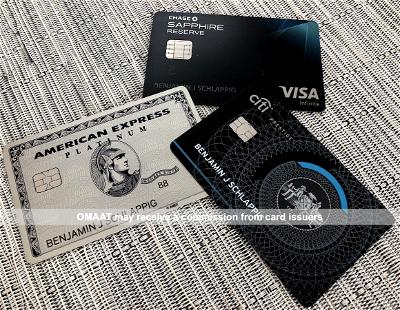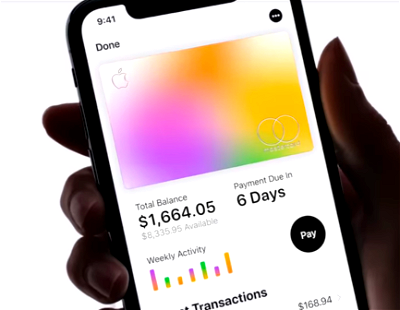Some of us go great lengths to maximize our credit card rewards, in some cases having dozens of cards, and making our pursuit of rewards points basically a part-time job.
If you’re the person in your circle of friends known for your credit card obsession, odds are good that you’re frequently asked by others which credit card they should use. I know I am. And it’s a struggle. My temptation is to optimize their strategy by having them get a handful of cards to maximize each spending category, but then I realize people quickly lose interest. They want a simple strategy that’s easy to follow.
With that in mind, in this post I wanted to share some simple credit card duos that can help you maximize your spending, whether you’re looking for personal or business credit cards.
In this post:
What are the best credit card duos?
In this post I wanted to share what I consider to be the six best credit card duos out there for maximizing rewards:
- I’ll include both personal and business card combos on the list
- If you’re willing to take on a more complex strategy there are absolutely ways to maximize your points even further, but this is all about simplicity
- In each case there will be one card with an annual fee and one card without an annual fee
- In general at least one of the cards has great bonus categories, while the other card has an excellent return on everyday spending
- I’m sticking to cards that earn transferable points currencies, since these offer a lot of flexibility; see here for my valuation of points
- For details on how best to go about getting approved for these cards, see my guide with credit card application rules by bank
With that in mind, here are my four favorite personal credit card duos, and my two favorite business credit card duos, in no particular order:
Chase Sapphire Preferred & Chase Freedom Unlimited: best Chase personal card combo
The Chase Sapphire Preferred® Card (review) and Chase Freedom Unlimited® (review) are a pretty unbeatable combo in the Chase Ultimate Rewards ecosystem, which is a favorite points currency among consumers:
- Annual fees — the Chase Sapphire Preferred has a $95 annual fee, while the Chase Freedom Unlimited has no annual fee
- Points earning — the Chase Sapphire Preferred offers 5x points on travel purchased through Chase Ultimate Rewards, 3x points on dining, online groceries, and select streaming services, 2x points on other travel purchases, plus a 10% anniversary points bonus, while the Chase Freedom Unlimited offers 5x points on travel purchased through Chase Ultimate Rewards, 3x points on drugstores, and 1.5x points on all other purchases
- Points redemptions — transfer points to any of the Chase Ultimate Rewards airline or hotel partners, or redeem them for 1.25 cents each toward travel purchases through the Chase Travel Portal
- What sets this card combo apart — the Chase Sapphire Preferred offers fantastic travel coverage, including trip cancelation coverage, car rental coverage, and more, and the Chase Ultimate Rewards ecosystem is also arguably the easiest for the average consumer to maximize

Citi Premier & Citi Double Cash: best Citi personal card combo
The Citi Premier® Card (review) and Citi Double Cash® Card (review) are an unbeatable combo for earning Citi ThankYou points, and offer the highest average return in terms of number of points of any mid-range card combo:
- Annual fees — the Citi Premier has a $95 annual fee, while the Citi Double Cash has no annual fee
- Points earning — the Citi Premier offers 3x points on gas, groceries, dining, air travel, and hotels, while the Citi Double Cash offers up to 2x points on all other purchases
- Points redemptions — transfer points to any of the Citi ThankYou airline partners, or redeem them for one cent each toward travel purchases
- Other valuable perks — there’s not another mid-range card combo where you’ll earn so many points per dollar spent in so many categories

Capital One Venture X & Capital One SavorOne: best Capital One personal card combo
The Capital One Venture X Rewards Credit Card (review) (Rates & Fees) and Capital One SavorOne Cash Rewards Credit Card (review) (Rates & Fees) are the ideal combo for earning Capital One miles:
- Annual fees — the Capital One Venture X has a $395 annual fee, while the Capital One SavorOne has no annual fee
- Points earning — the Capital One Venture X offers 10x miles on hotels and rental cars booked through Capital One Travel, 5x miles on flights booked through Capital One Travel, and 2x miles on all other purchases, while the Capital One SavorOne offers 3x miles on dining, grocery stores (excluding superstores like Walmart® and Target®), entertainment, and select streaming services (it’s a cash back card, but in conjunction with the Venture X, rewards can be converted at the rate of one cent per mile), plus through November 14, 2024, the card offers 10x miles on Uber and Uber Eats purchases
- Points redemptions — transfer points to any of the Capital One airline and hotel partners, or redeem them for one cent each toward travel purchases
- Other valuable perks — the Venture X annual fee is easy to justify, given the card’s $300 annual travel credit and 10,000 anniversary bonus miles, plus all the other valuable perks ranging from a Priority Pass membership to incredible authorized user benefits

Amex Gold & Amex EveryDay: best Amex personal card combo
The American Express® Gold Card (review) and Amex EveryDay Credit Card (review) are a great combo for earning Amex Membership Rewards points:
- Annual fees — the Amex Gold has a $250 annual fee (Rates & Fees), while the Amex EveryDay has no annual fee
- Points earning — the Amex Gold offers 4x points at restaurants, and at U.S. supermarkets (on up to $25,000 per calendar year, and then 1x), and 3x points on airfare purchased directly from airlines, while the Amex EveryDay offers a 20% points bonus when you make 20 transactions per billing cycle, meaning you can earn up to 1.2x points on everyday spending
- Points redemptions — transfer points to any of the Amex Membership Rewards airline or hotel partners, or redeem them for one cent each toward travel purchases
- Other valuable perks — despite the Amex Gold’s $250 annual fee initially appearing high, the card offers valuable benefits and credits that could help offset it significantly
The information and associated card details on this page for the Amex EveryDay Credit Card has been collected independently by OMAAT and has not been reviewed or provided by the card issuer.

Chase Ink Preferred & Chase Ink Unlimited: best Chase business card combo
The Ink Business Preferred® Credit Card (review) and Ink Business Unlimited® Credit Card (review) are arguably an even better combo than what’s offered by Chase’s personal cards:
- Annual fees — the Chase Ink Preferred has a $95 annual fee, while the Chase Ink Unlimited has no annual fee
- Points earning — the Chase Ink Preferred offers 3x points on travel, shipping purchases, internet, cable and phone services, and advertising purchases made with select social media sites and search engines (on up to $150K in spending her anniversary year), while the Chase Ink Unlimited offers 1.5x points on all other purchases
- Points redemptions — transfer points to any of the Chase Ultimate Rewards airline or hotel partners, or redeem them for 1.25 cents each toward travel purchases
- What sets this card combo apart — the Chase Ink Preferred is the most well rounded business card out there, and both of these cards also have phenomenal welcome bonuses

Amex Business Gold & Amex Blue Business Plus: best Amex business card combo
The American Express® Business Gold Card (review) and The Blue Business® Plus Credit Card from American Express (review) combine some valuable bonus categories with the best business card for everyday spending:
- Annual fees — the Amex Business Gold has a $375 annual fee (Rates & Fees), while the Amex Blue Business Plus has no annual fee (Rates & Fees)
- Points earning — The Amex Blue Business Plus offers 2x points on the first $50,000 spent every year (1x after that). The Amex Business Gold ears 4X Membership Rewards® points on the 2 categories where your business spends the most each billing cycle from 6 eligible categories. You will earn 4X points on the first $150,000 in combined purchases from these categories each calendar year (then 1X thereafter).. These categories include:
- Purchases at US media providers for advertising in select media (online, TV, radio)
- U.S. purchases made from electronic goods retailers and software & cloud system providers
- U.S. purchases at restaurants, including takeout and delivery
- U.S. purchases at gas stations
- Transit purchases including trains, taxicabs, rideshare services, ferries, tolls, parking, buses, and subways
- Monthly wireless telephone service charges made directly from a wireless telephone service provider in the U.S.
- Points redemptions — transfer points to any of the Amex Membership Rewards airline or hotel partners, or redeem them for up to ~1.33 cents each toward airfare, thanks to the Amex Business Gold’s up to 25% back on “Pay With Points” redemptions
- Other valuable perks — the Amex Blue Business Plus can be a valuable card regardless of which other card you have it in conjunction with

Bottom line
Generally, you can get so much better of a return on your credit card spending if you’re willing to get two credit cards rather than just one. I’m by no means suggesting that the above are the only good strategies for maximizing points, but rather am saying that these are among the simplest, most economical strategies for maximizing your credit card rewards.
In some cases, there can be big value in getting a combination of personal and business credit cards to really maximize your rewards, but again, the above is all about simplicity. For example, for many people, there could be value in getting the Chase Sapphire Reserve® (review) in place of the Sapphire Preferred, while I’d argue The Blue Business® Plus Credit Card from American Express is a phenomenal complement to just about any other card.
I’m curious to hear what OMAAT readers think — what do you think is the best credit card duo out there?
The following links will direct you to the rates and fees for mentioned American Express Cards. These include: American Express® Business Gold Card (Rates & Fees), American Express® Gold Card (Rates & Fees), and The Blue Business® Plus Credit Card from American Express (Rates & Fees).





I used to frequently use the duos more than I do now because I realized other cards that I get a better cash return for everyday purchases than these.
You did not mention the CSR and the freedom card but the preferred?
AA Barclays (and some CITI)... all the way spend all purchases to gain AA EXP status.
AA World Exec card .... to gain access to the Admirals Club.
Shame really. Because American was generous and now- not so much.
That change at JFK for only BA elites and AA elites ----flying on a certain "Flagship: LAX or SFO........thing is ridiculous.
There should be space for 12PM service with the T3 at...
AA Barclays (and some CITI)... all the way spend all purchases to gain AA EXP status.
AA World Exec card .... to gain access to the Admirals Club.
Shame really. Because American was generous and now- not so much.
That change at JFK for only BA elites and AA elites ----flying on a certain "Flagship: LAX or SFO........thing is ridiculous.
There should be space for 12PM service with the T3 at Terminal 8 for AA Admirals Club flying in Biz --- JFK to MIA on a big 777.
I hear all the Lounges of Chelsea, SOHO, and Greenwich are always empty till 6pm due to LHR flurry of BA departures mainly.
Advantage for Capital One: it's the only duo where neither card charges foreign transaction fees. Recommended this pairing to a friend who will be living abroad this year.
I have always thought the Chase Freedom Flex was a better value than the Freedom Unlimited, considering the Sapphire earns an extra .1 with the 10% anniversary bonus the CFU only earns 0.4 points more per dollar on non category. The CFF earns 3.5/$ more than the CFU on targeted categories, meaning if you hit 50% of the annual max 5x on the CFF you are better off unless you are putting over $26k/yr on the CFU.